Trump Appeals ‘Un-American’ Half-Billion-Dollar Fraud Judgment Won by Letitia James, Calling It a ‘Miscarriage of Justice’
Mr. Trump’s legal team, who faced steep odds in liberal Manhattan, have long predicted the real battle would be fought at the appellate level.
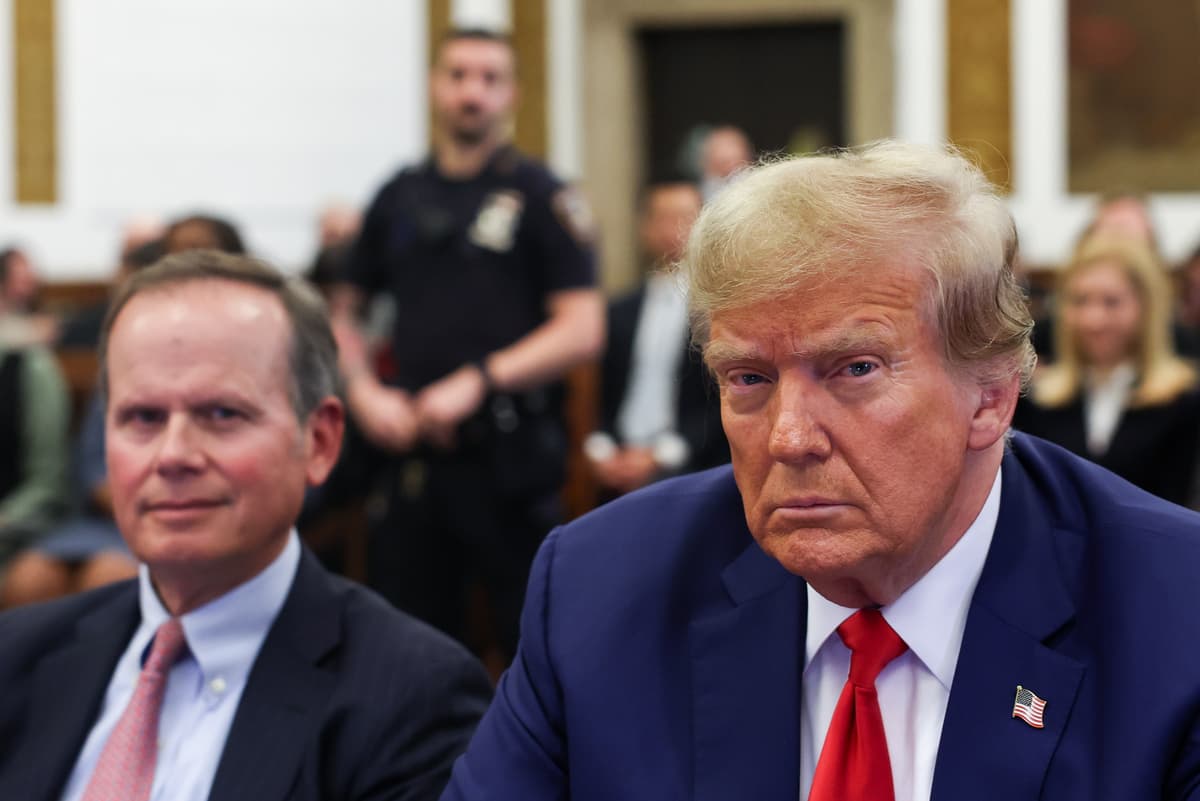
President Trump has appealed his civil fraud case, brought by New York’s attorney general, Letitia James, opening a new front in his battle against the astronomical $464 million judgment that the trial judge, Arthur Engoron, ordered in his February decision.
“This appeal seeks reversal of the trial court’s legally bereft decisions,” Trump’s defense attorney Christopher Kise wrote in a statement to the Sun. His team asked the Appellate Division “to rescue the rule of law and to correct the innumerable and catastrophic errors made by a trial court untethered to the law or to commercial reality.”
Last year, Ms. James, an elected Democrat, sued Mr. Trump and others for business fraud, alleging that he, his two adult sons, Don Jr. and Eric, as well as two veteran Trump Organization employees, the former chief financial officer, Allen Weisselberg, and former controller, Jeff McConney, inflated Trump’s net worth and various assets and falsified financial statements in a decades-long scheme to gain better interest rates from banks and more favorable insurance policies.
Judge Engoron found the Trumps guilty in a pretrial summary judgment, and then after a long trial determined damages that awarded the state more than $464 million dollars. He also ordered that two court-appointed monitors oversee the finances of the Trump Organization for the next three years.
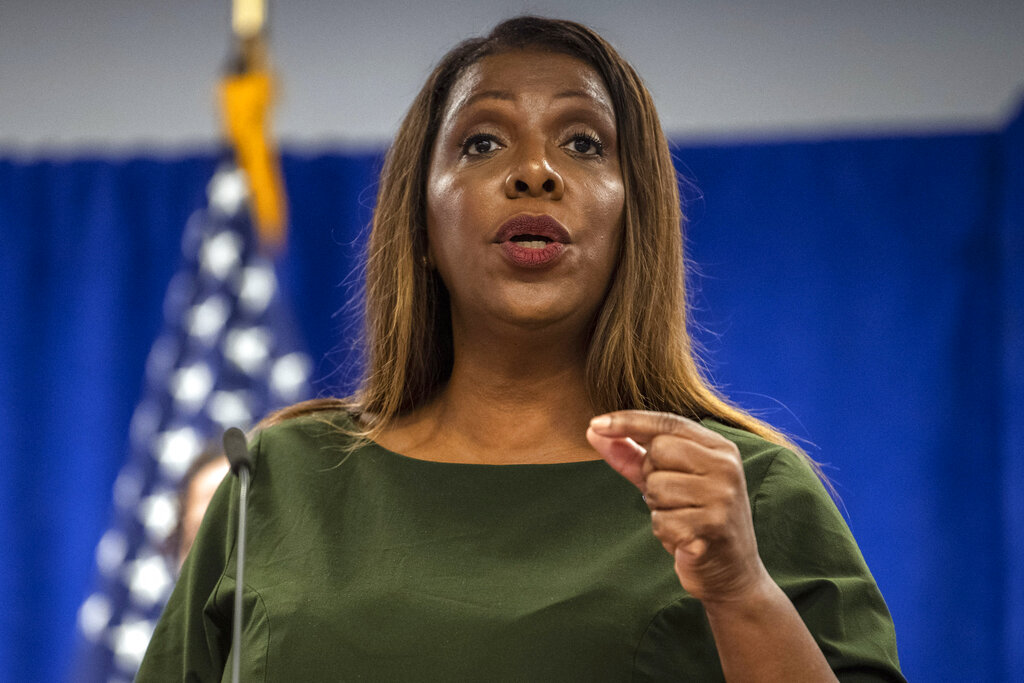
“The frauds found here leap off the page and shock the conscience,” Judge Engoron wrote in his February decision. He had already found all defendants liable for “persistent and repeated fraud” in his pretrial decision, based on his review of the hundreds of pages of documents submitted by the attorney general and the defense. During the trial, he remarked that there was enough evidence to “fill this courtroom.”
In his final decision, however, the judge changed the part of his pretrial ruling, which had canceled Trump’s business licenses and effectively barred the real estate tycoon from ever doing business in New York again. In a victory for Trump, the appeals court had already stayed that order until a final review of the case. Judge Engoron adjusted his decision and barred Trump, Weisselberg, and Mr. McConney from holding the role of an “officer or director” of any company in New York for the next three years, while barring Trump’s sons by his first wife, Ivana, for two years. Trump’s three other children, Ivanka (a former executive in the Trump Organization), Tiffany and Barron are not included.
Trump, who denies any wrongdoing and told the court on the witness stand that he is “an innocent man,” has called both the indictment and the verdict politically motivated and part of the “lawfare” he says, Democrats are waging against him, his family and his businesses.
In his statement, Mr. Kise described the penalties as “draconian, unlawful, and unconstitutional,” and accused the trial court of allowing “a reckless, politically motivated Attorney General to meddle in lawful, private, and mutually profitable transactions.”
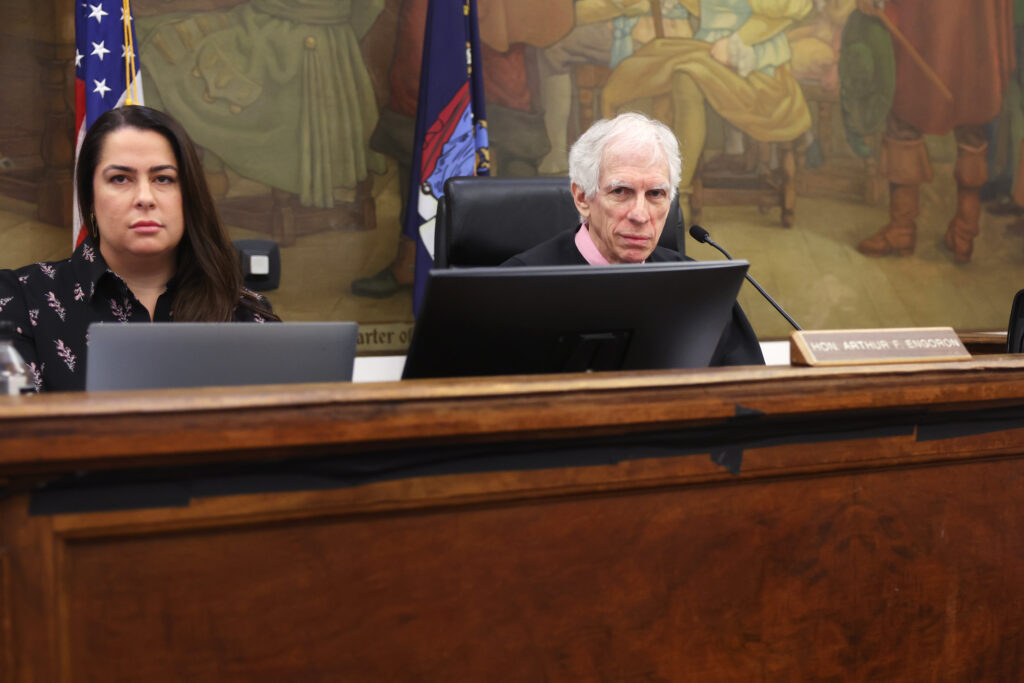
“This abject disregard for established precedent, the Constitution and the sanctity of the complex commercial marketplace places the New York legal system and business community at extreme risk. Indeed, such an outrageous miscarriage of justice is profoundly un-American, and a complete reversal is the only means available to restore public confidence in the integrity of the New York judicial system,” Mr. Kise wrote.
Regarding the alleged business fraud, he stated that during the “44 days of trial, not one witness, not one complaint, and not one victim supported Letitia James’ manufactured claims of “fraud”. To the contrary, the evidence established President Trump’s net worth far exceeded what was reported in his financial statements and the sophisticated bankers involved pursued and enjoyed a long and satisfactory business relationship with him as a prized client,” Mr. Kise’s statement said.
Besides reiterating the no-victims argument – that no bank, no insurance company, and no clients suffered any financial losses – which Trump’s attorneys already raised during and before the trial, they also returned to their claim that the statute of limitations on the alleged misconduct had long expired. Last but not least, they argued that the size of the judgment, which surpasses half a billion dollars with interest fees, is unconstitutional. Legal observers have noted that a verdict of that size would normally be levied against a giant, multinational corporation that engaged in grievous misconduct, rather than against a relatively small, family owned shop such as the Trump Organization.
“The monetary award is a punitive penalty imposed for retributive and deterrent purposes. It is both grossly disproportional [sic] under the Eighth Amendment’s Excessive Fines Clause and grossly excessive under the Due Process Clauses,” Trump’s attorneys wrote in their 95-page long appeals brief, filed on Monday evening.
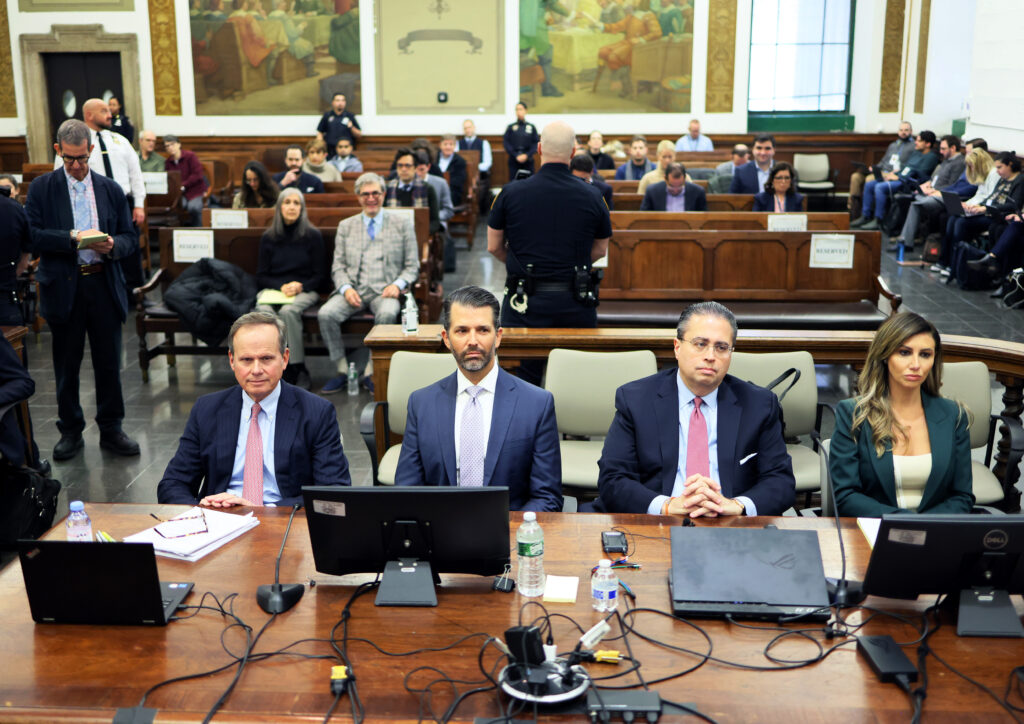
Furthermore, an application of “the correct statute of limitations,” the attorneys reasoned, would “eliminate” $350 million dollars of the $464 million judgment.
Last June, the appeals court dismissed Ivanka Trump, as a defendant in the case, after Ms. James had originally included her in the indictment, finding that claims against her were untimely. The appeals court recognized that Ms. Trump was not working at the Trump Organization when the company and Ms. James signed a tolling agreement, effectively extending the statute of limitations.
In their filing, the defense argued that the case should also have been dismissed against the Trump Organization, as well as against former President Trump, his sons, and his employees.
“The Tolling Agreement does not bind the Trust. Under New York law, only a ‘trustee’ as the fiduciary of the trust is ‘authorized . . . [t]o execute and deliver agreements[,] . . . contracts . . . and any other instrument necessary or appropriate for the administration of the estate or trust,’” the attorneys argued, adding that the only defendants, “who served as trustees of the Trust are President Trump, Donald Trump Jr., and Allen Weisselberg.”
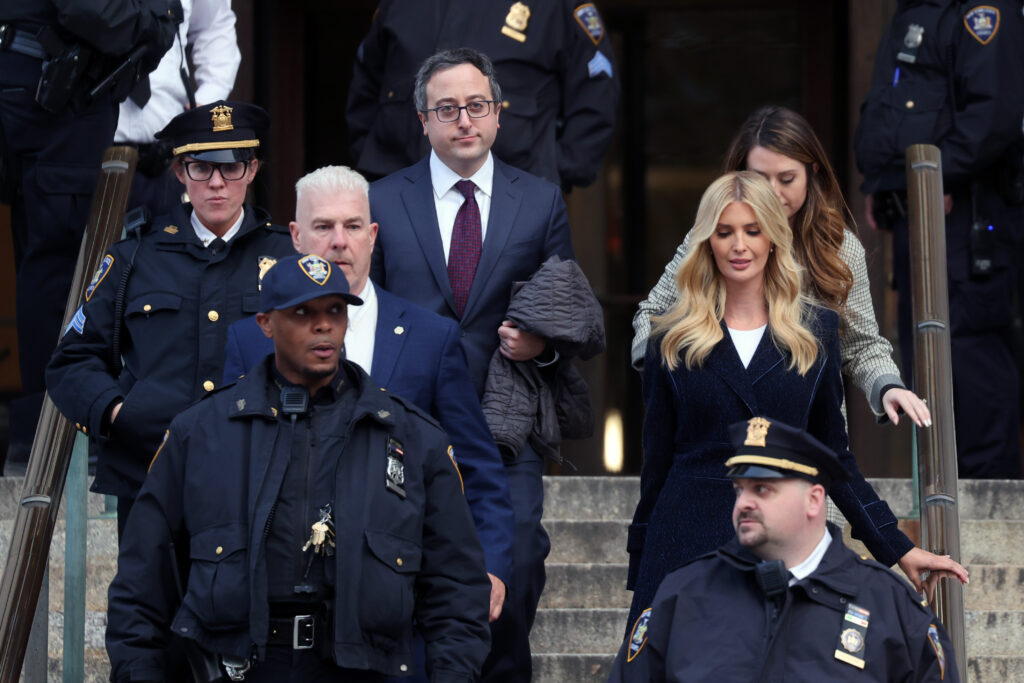
But none of them actually signed the tolling agreement. “Only the Trump Organization’s Chief Legal Officer, Alan Garten, signed the Tolling Agreement on behalf of the Trump Organization,” the filing states.
Mr. Garten, however, “never served as a trustee or a beneficiary of the Trust and has no authority to bind the Trust. Therefore, NYAG’s causes of action involving the Trust are time barred to the extent they are based on transactions completed before February 6, 2016,” the attorneys wrote, referring to the attorney general, Ms. James.
Therefore, the only timely bank loans were the loans for the Old Post Office building in Washington, DC (which Trump turned into a hotel), and 40 Wall Street in Manhattan (which holds mostly high end office space). Assuming the loans were granted due to fraudulent financial statements in violation of the law, the judgment would effectively be reduced to $114 million, the attorneys calculated.
In his pretrial decision, Judge Engoron addressed the defense’s statute of limitations argument, finding that Ms. James’s charge was not directed at the actual loans, but at the fraudulent information in the financial documents.
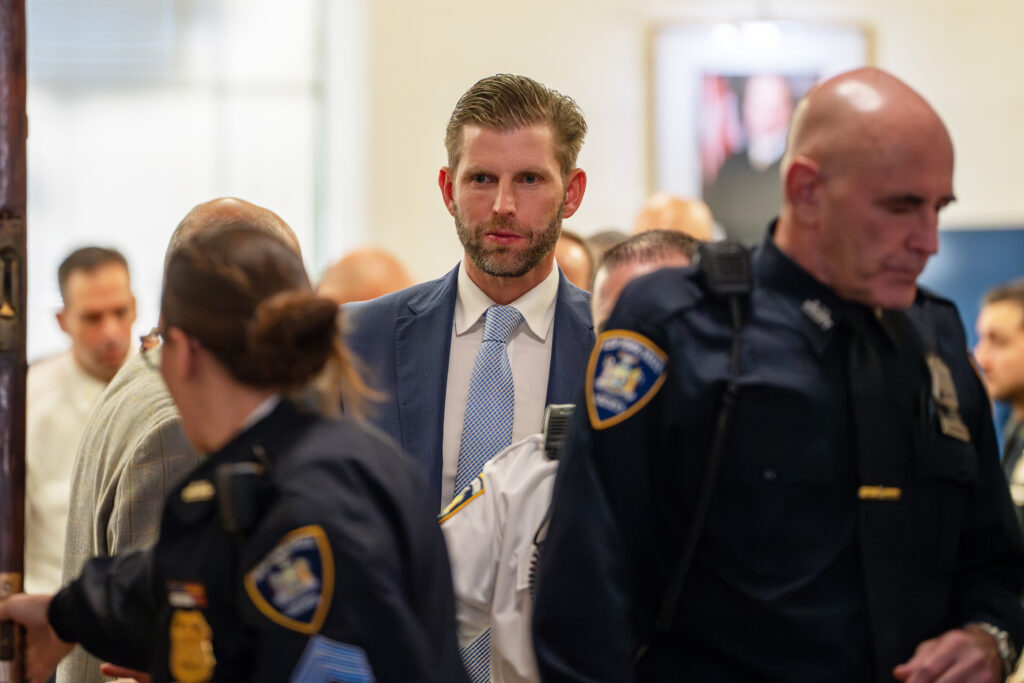
“Once again, the defendants are raising arguments that they were already sanctioned and fined for. We won this case based on the facts and the law, and we are confident we will prevail on appeal,” a spokesperson for the attorney general’s office said in a statement.
Ms. James’ response to Trump’s appeal is due on Aug. 21, followed by Trump’s reply on Aug. 30.
While Judge Engoron’s rulings during the trial mostly sided with Ms. James, the higher courts have shown some skepticism. In April, the appeals court reduced the bond Trump had to post for the awarded $464 million judgment to $175 million. The higher court also paused almost all other penalties issued by Judge Engoron: The order to bar Mr. Trump from applying for loans from New York financial institutions for three-years; the order to bar Donald Trump Jr. and Eric from serving as officers or directors in New York companies for two-years; and the order to permanently bar Weisselberg and Mr. McConney from holding financial control positions in New York businesses. All of these punishments were put on hold.
Mr. Trump, under siege from elected Democratic prosecutors in his home state and city, relocated to Florida during his presidency. He continues, however, to have substantial business interests in New York.
The court is scheduled to consider arguments in the appeal during the last week of September.

